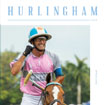|
Three largest polo associations withdraw from international body The three largest national polo associations, representing well over half of the world’s amateur and professional players, have resigned their membership of the Federation of International Polo (FIP). The Asociación Argentina de Polo (AAP) withdrew from the international federation on 26 October 2009, followed on 27 October by the US Polo Association (USPA) and the Hurlingham Polo Association (HPA), governing body of the sport in the UK and Ireland. Between them these three biggest former stakeholders in the FIP have just over 9,000 registered members, compared with less than 7,500 in the other approximately 50 polo-playing countries that are members of the FIP. “It is with the deepest regret that we three associations have resigned from the FIP,” said a spokesman speaking on behalf of the three. “We believe strongly in the concept of a global body to represent the sport of polo in international forums, but we have been disappointed by the unwillingness of the current president to take on board or even discuss the concerns of ourselves and others. The polo world is a small one so it is sad day for the game and we will now have to look at how best we can continue to help expand the game in the many countries where it is now played or might be introduced.” The HPA traces its ancestry back to the 1875 Polo Committee of London’s Hurlingham Club and currently has 24 affiliated countries playing under HPA rules. The USPA, under chairman Thomas Biddle of Aiken, South Carolina, was founded in 1890. The AAP, under president Luis Lalor, had its beginnings in 1892. The FIP was formed much later, in 1982, to promote the growth of polo worldwide and foster cooperation between all the autonomous national associations. |


